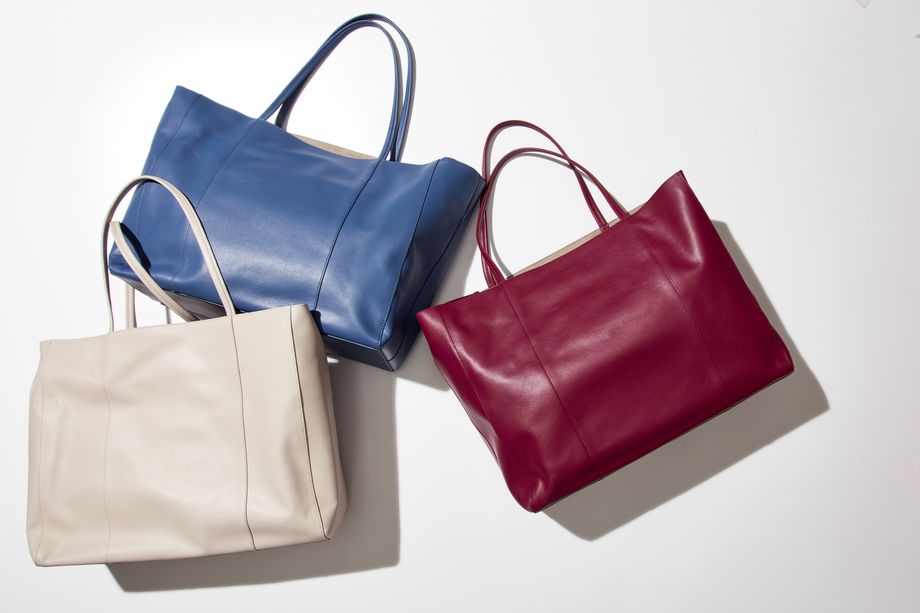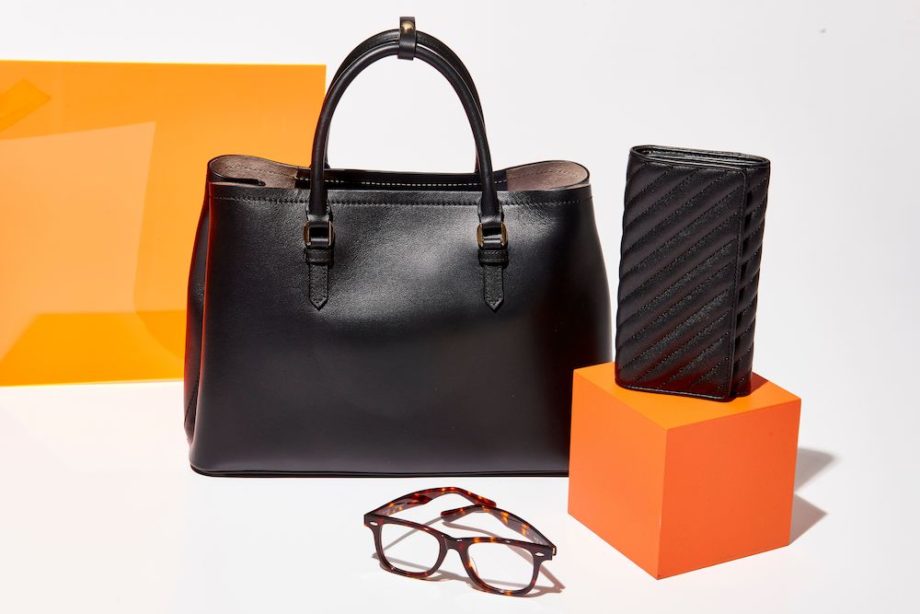Part of the illusion of luxury branding, has always been in its ability to add a perceived value to a product or commodity.

The brand, the logo, the brand image has always been designed to add the mysterious added X factor to a product. The X factor that allows the brand to command vast mark ups, and profits. And it’s the concept that the whole brand marketing industry is built on.
So, let’s imagine if you could do the reverse. Take a branded luxury item like say a designer handbag and then ‘unbrand ‘it. That’s right, take your Gucci or Hermes genuine factory-made item and remove all traces of branding from it. And then sell the unbranded but authentic item for a price that has just a small mark up from the factory cost.
It is certainly a disruption. Italic is the new VC fuelled start up that raised $US13 million and could really shake up the luxury industry.
Imagine walking into the Italian factory that makes leather bags for Celine and asking them to make you a black leather tote bag. You want the same exact high-quality materials, the same meticulous craftsmanship, similar designs. The only thing that is missing is the big logo. If you paid the factory fairly for the materials and the labour, the bag would run you about $250, which is a tiny fraction of a $4,000 tote you would pick up at a Celine boutique.
Italic, a new members-only marketplace that launches today, wants to sell you that Celine-quality bag without the outrageous price that comes along with the logo. Founder and CEO Jeremy Cai scoured the globe to find the factories that make products for the best luxury brands in the world and delivers a curated array of exclusive products from those same factories at reasonable prices. Unlike other direct-to-consumer start-ups, Italic doesn’t design products or even buy inventory from these manufacturers, leaving this up to product designers at the factories.
Among its 100 introductory products at launch, Italic will sell a $95 cashmere scarf made at Burberry’s factory, a $75 quilted wallet made at Prada’s factory, a $245 bucket bag made at Givenchy’s factory, and–my favourite item of the bunch–a $225 black pebbled fanny pack made at Cartier’s factory. New items will launch every month.
The products themselves don’t rip off the specific designs of other luxury brands–instead, products are crafted by makers at the factory who have years of experience making products for other companies. Parsing the Italic website, there are lots of designs that are on trend but aren’t reminiscent of any particular brand. The fanny pack, for instance, reflects the current, slightly ironic craze for this ʼ90s-style bag that brands like Gucci and Louis Vuitton are playing into. A leather jacket is designed with the cropped moto look that is so in vogue, with unfussy silver hardware. Yet none of the items crib a specific design element of a particular brand, like the structured silhouette of Celine totes or Prada’s creative use of industrial nylon in backpacks and belt bags.
Founder Jeremy Cai comes from both the manufacturing and start-up world. His family members are Chinese immigrants and Chicago residents who run a car parts manufacturing company, which supplies to Nissan, BMW, and Tesla. Four years ago, Cai co-founded the HR software start-up Fountain, which was incubated in YCombinator. While working with Fortune 500 companies, Cai noticed that brands like Target were turning to private label to nab more profit. He began to brainstorm a private label business of his own and decided to target luxury goods. DTC giants had paved the way for online shoppers to try new brands over legacy ones — Casper over Mattress Firm, Away over Samsonite — and he felt that shopping had finally reached a point where “we all realize that the expensive things we buy aren’t actually expensive to make, but expensive to sell.”
Cai, who is based in LA, hit the ground to start Italic last year. He poached employees from Calvin Klein, Armani, and Patagonia, and grew his team to 15, with some settling in Milan and Hong Kong to be closer to the factories. Through family connections in the manufacturing world, he met with over 200 factories in Italy and China. Cai’s pitch for Italic was that the factories could essentially act as their own brand. They take responsibility for the costs of inventory they create, and for a commission, Italic takes care of the design, marketing, warehousing, and storage fulfilment.
Cai says what initially seemed like a big ask — a yet-to-be-launched start-up approaching factories that work with luxury giants like LVMH — didn’t take too much convincing.
“They get to focus on what they’re good at, which is manufacturing high- quality products, but they set their prices and essentially operate with the margins of a brand,” he says.
Ahead of its launch, Italic raised $13 million from investors including Comcast Ventures, Global Founders Capital, Index Ventures, and Ludlow Ventures. Daniel Gulati, a partner at Comcast Ventures, which led the funding round, tells Vox that Italicʼs pitch intrigued him because it “democratizes luxury.”
“The days of being able to mark-up a handbag one thousand percent are coming to an end, because more shoppers are putting an emphasis on value,”
Gulati says. “Plenty of legacy luxury brands are losing relevance because when consumers care less about their brand, the value fades.”
“Weʼre not trying to create a cohesive design language where everything must adhere to one specific aesthetic,” says Cai. “Weʼre not a product development shop. Weʼre trying to replicate what a retailer does at scale, but instead of working with brands, we’re working with manufacturing partners. The goal is to give customers lots of options.”

At the start, the majority of Italic’s offerings will be luxury accessories, like scarves and bags, since these products have the highest mark-ups and best demonstrate the company’s value proposition. But eventually, Cai hopes to expand into a wide range of other categories, like toothbrushes and skincare. In each case, Italic will locate the very best manufacturers and make the same high-quality product without any branding.
Over the past several years, new start-ups like M.Gemi, Everlane, and Cuyana have said they use the same factories as luxury brands, but they generally don’t go so far as to name which brands, they are specifically referring to. Italic, on the other hand, boldly names the specific brands that also make products at these factories. (That said, Italic doesn’t actually provide identifying details about these factories, like their names or locations, so the factory owners don’t damage their relationships with the luxury brands in question.)
“We’re a little controversial in that we say ‘here is a handbag made in the same factory as Prada,’” Cai says. “But because you’re buying it from the source, and there are no logos on any of our products, you can get it for a fifth or a tenth of the price that you might normally expect to pay. We think this is a powerful value proposition to someone who likes nice things but doesn’t like paying the premium for a logo.”
While the idea of shopping directly from the factory is a relatively novel concept in the West, but it’s an idea that has long been popular in China. Several Chinese companies, like Biyao, NetEase YanXuan, and Xiaomi Mijia Youpin, all operate on a similar model of going into top factories and selling brandless versions of products. The model has been successful with the Chinese market, which is remarkable since Chinese consumers tend to be more logo conscious than American ones. “People love logos there, it’s almost like America in the ’90s,” says Cai, whose family is from China. “And yet companies like these have really exploded.”
In his initial customer research, Cai has found that people’s attachment to a specific brand name varies a lot from person to person. Some people will only buy their sheets from luxury bedding maker Frette, but don’t care whether their leather bag has a fancy logo on it, as long as it is durable. Another person will drop $4,000 on a Celine bag, but will buy drugstore aisle makeup as long as it looks good. Cai’s goal is to provide a wide variety of products so that thereʼs something on the site for every kind of consumer.
While thereʼs been a resurgence of logomania over the last few years, with brands like Gucci and Louis Vuitton plastering logos on products, a recent report by Goldman Sachs found that millennials prefer clothing without logos and branding. Italic is a direct response to this trend. “We’re cutting out the brand, which is the largest middleman of all,” Cai says.
FIB loves the idea and thinks there is a vast discerning base of stylish shoppers who do not need huge logos emblazoned all over them to make them feel stylish.






